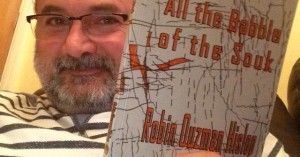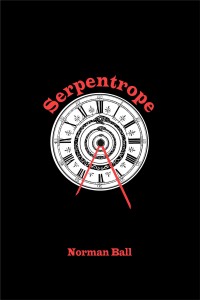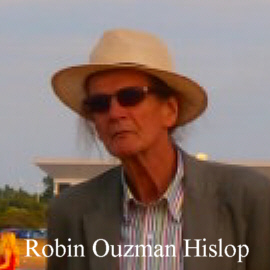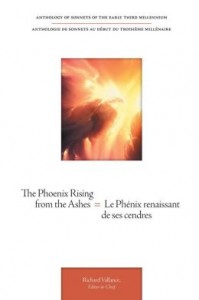
https://martinezarboleda.wordpress.com/
Before I provide my views about All the Babble of the Souk (Aquillrelle, 2015), I must declare my admiration for its author, Robin Ouzman Hislop. He is a person of great intellect, determination and generosity, a combination of traits that is unfortunately not so common in our world. In his work as an editor Robin promotes literary quality and innovation whilst helping hundreds of artists to feel and become part of a global community of equals which expands through Poetry Life and Times. He has demonstrated his commitment to grassroots, popular and digital poetry by supporting Transforming with Poetry and Poesía Indignada, two of the platforms I run. Knowing him personally makes this review a pleasant experience. I think the reader is entitled to be aware of the subjectivity of my views and I wish people were more open about declaring all the reasons informing their personal preferences when they write about other’s work. Our “professional” world is polluted by a false duty of objectivity which often takes away the most valuable information one can provide about the work of someone else: the human qualities of the author.
In his work All the Babble of the Souk, Robin takes us through a fascinating journey into the painful complexities, and the beauty, of the universe, with a very honest, informed and uncompromising cosmovision. Robin’s poems are enlivened with very opportune geographical, physical, scientific and human ingredients, including what seems to be autobiographical references. These are also the stepping stones for Robin’s insightfully critique of our constructed social reality and our species. But make no mistakes: the reader will not find a political programme in the poetry of Hislop. Instead, he offers an impressionistic yet refined understanding of what is wrong, and what is right, with humanity: we humans are an indistinguishable and intertwined part of the matter that surrounds us. We are as immense as the galaxies we dream with, as little as the atoms that sustain us and as problematic as the viruses who kill us. We struggle in our lives with the symmetries and asymmetries that underpin nature and the universe.
Robin’s work is an invitation to discover the necessity and expressive value of sometimes relatively uncommon words that reveal the richness of the world he encounters. Words for him are the commotion of the intellect, a statement of fiery consciousness where signifier and signified can often melt. But the reader should not be afraid of this. The poems are very enjoyable and thought-provoking, even if one feels inclined to consult the dictionary now and then. The use of occasional rhymes and repetitions or the combination of monosyllables in some poems is very effective. With no exception along the whole book, the pace of Robin’s prosody is light and elegant like the walk of a playful Arab horse.
Overall, a very recommended read. Thank you for your poetry, Robin!

Tony Martin-Woods started to write poetry in 2012, at the age of 43, driven by his political indignation. That same year he also set in motion Poesía Indignada (Transforming with Poetry), an online publication of political poetry that he edits. Tony is a political and artistic activist who explores the digital component of our lives as a means to support critical human empowerment. He is also known in the UK for his work as an academic and educator under his non-literary name. He writes in English and Spanish and has published his first volume of poetry Los viajes de Diosa (The Travels of Goddess) 2016.
www.facebook.com/PoetryLifeTimes
www.facebook.com/Artvilla.com
robin@artvilla.com
editor@artvilla.com
goodreads.com/author/show/Robin Ouzman Hislop
http://www.aquillrelle.com/authorrobin.htm
http://www.amazon.com. All the Babble of the Souk. Robin Ouzman Hislop
www.lulu.com. All the Babble of the Souk. Robin Ouzman Hislop
https://www.amazon.com/author/robinouzmanhislop
http://www.innerchildpress.com/robin-ouzman-hislop.All the Babble of the Souk







